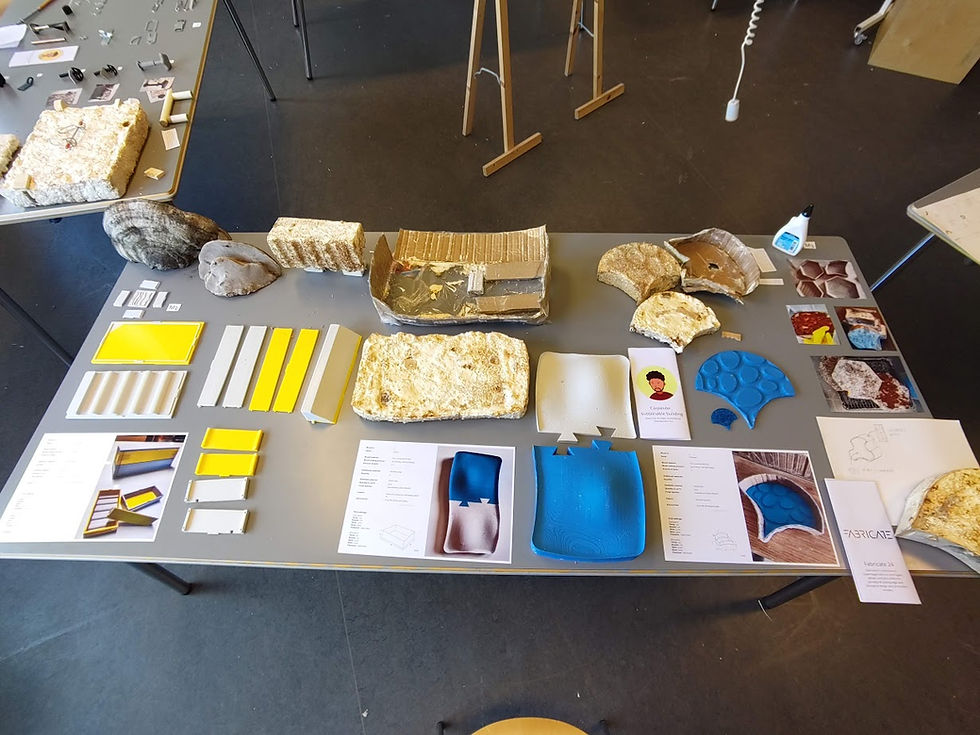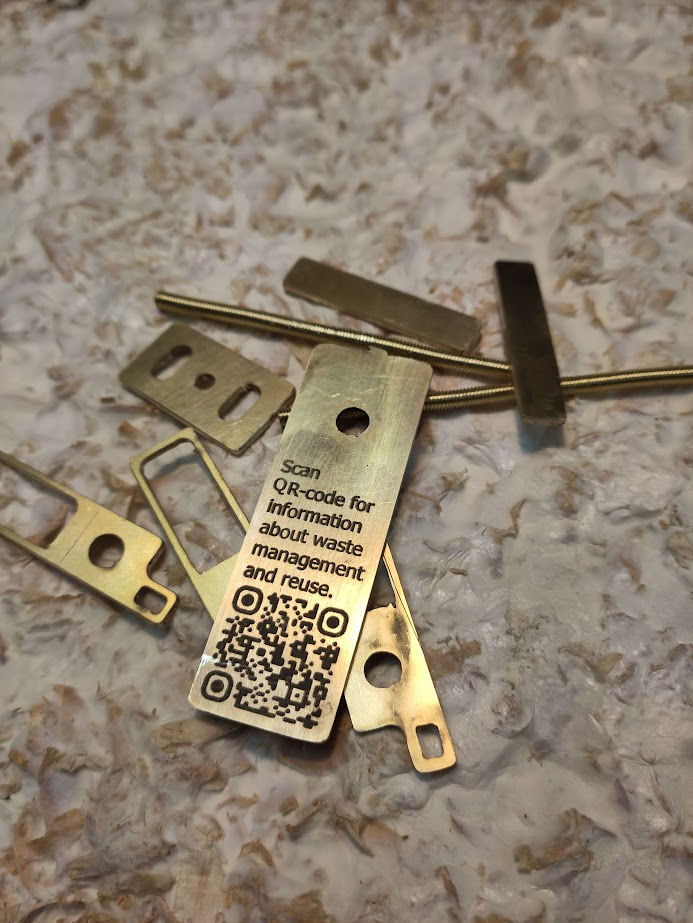top of page
Amalie W. Jensen
Myco-connector
The collaborator, the high-end interior design company Mycela.Labs, were searching for a mounting solution for their Mycelium sound insulation panels, as traditional mounting systems don't work for this material.



Screws
Glue
Velcro
Magnets
Interlocking tiles
Currently available mounting solutions rely on additional materias, causing extra steps in the production process and/ or at the end of life.

How might we create an elegant, recyclable and easy-to-install mounting solution respecting the Mycelium material properties and Mycela story?


What is Mycelium Composits?
Mycelium composites are created by growing the root-like structure of fungi that grows underground, called mycelium, on cellulose-based materials such as wood chips and cotton. Once the growing process is over and the materials are dried, you are left with strong, fireproof, thermal- and sound-insulating styrofoam-like material. The process and end product are chemical-free, and the material is entirely biocompatible and home compostable.
The process
























1/1
The Design Solution

Mounting solution
Mycelium-composite sound isnulation panel
Design for disassembly
Local manufacturing
Recyclable
Mono-material


Durable
Production on demand
Versatile minimal aesthetic
Re-Use

Hanging mounting solution



Easy to hang using standard 4mm wire. Wide opening at the bottom and narrow at the top allows a wire with a stopper to lock in place with ease.
Standard wire
Easy and intuitive to mount and disassemble with a simple pinching mechanism
Pinch to fasten
Simply unscrew these nobs, and everything can easily be separated.
Easy to dissasemble
Simply pull outwards to release for disassembly
Grip

Wall mounted solution
Distance for acoustic performance


The greater the distance from the wall, the better the acoustic performance. But if it sticks far out, it may take up too much space in the room. This solution allows you to vary the distance depending on need.
All made from sheet metal and rods
All pieces are made from either rods or cut sheet metal using CNC milling. This allows for cost-effective and easy production, allowing the piece to be produced locally in Oslo.
Hole for gripping to the material
Instead of teeth, because of the porous nature of the material, a simple gap is used instead of "teeth" to grip onto the material.
The mechanism is currently being made ready for mass production
Final changes and test for certification is being planned at the moment
Next steps
bottom of page



